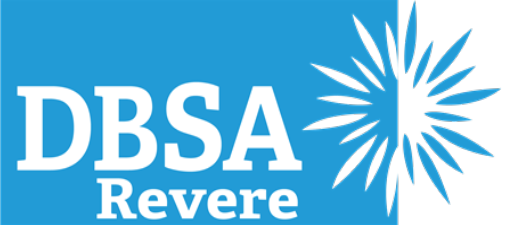Newcomers
Do you need help NOW? Go to our CRISIS HOTLINES
We are thrilled you have decided to learn more about DBSA Revere’s all-volunteer, peer-led support group! This group invites those coping with mood disorders (and their loved ones) to support each other through sharing and caring. Our facilitators are not therapists, they are trained volunteers. This page offers some general information about the group, its strengths, and its possibilities.
DBSA Revere Support Group Meetings are Held REMOTELY EVERY Tuesday Evening
Would you like email notifications about meetings, cancellations etc.. ?
Please join our anonymous group email distribution list
CLICK HERE to join a TUESDAY evening Zoom meeting:
Meeting ID: 840 9545 0597
(Based on the Mood Disorders Association of Ontario & Toronto)
Guidelines:
- Share / Care groups run for 90 minutes every Tuesday evening from 6:15 – 7:45pm.
- Groups vary in size week to week; they typically have between three and fourteen members.
- We encourage you to introduce yourself by your first name.
- No one is ever forced to share unless they want to (the “Pass Rule”).
- The group is a democracy which reflects members’ experiences, interests, and concerns.
- Feel free to ask the group for feedback on situations / issues you are currently facing
- Please keep in mind that feedback should be framed in first-person language, using only personal experiences and knowledge.
- We ask that members listen respectively and attentively – discriminatory language or actions will not be tolerated.
- Confidentiality is key – please keep what you have heard in group to yourself.
- We value you and your opinions. Feedback to make our groups better is encouraged.
Tips:
- The most important first step is making it here for the first time!!!
- Keep an open mind. We discuss issues which may be sensitive, emotional, or new to some people. Another group member may be in crisis or may have experiences that are different from your own. Everyone has the right to his or her own opinion and experience.
- You have valuable insight to offer to others! We rely on group members to share their personal knowledge and experiences (if they feel comfortable). This helps create an authentic and supportive environment!
- We understand that groups like ours offer social contact and a common bond from which people may choose to develop friendships. However, keep in mind that group members are vulnerable! We ask that you proceed slowly and mindfully. Try meeting up with members outside the group!
- Time is needed to develop rapport, so stick with us! We strongly recommend that you attend 3 – 4 groups before judging whether or not the experience is effective for you.
- We are not a 12-step program, nor do we offer group therapy. We are a self-help group.
- Our facilitators are volunteers who have firsthand experience with a mood disorder (or are a friend / loved one of an individual with a mood disorder). Facilitators receive on-going training and support.
Non-Discrimination
The chapter and its support groups do not discriminate against any individual or group based on age, gender, race, creed,
